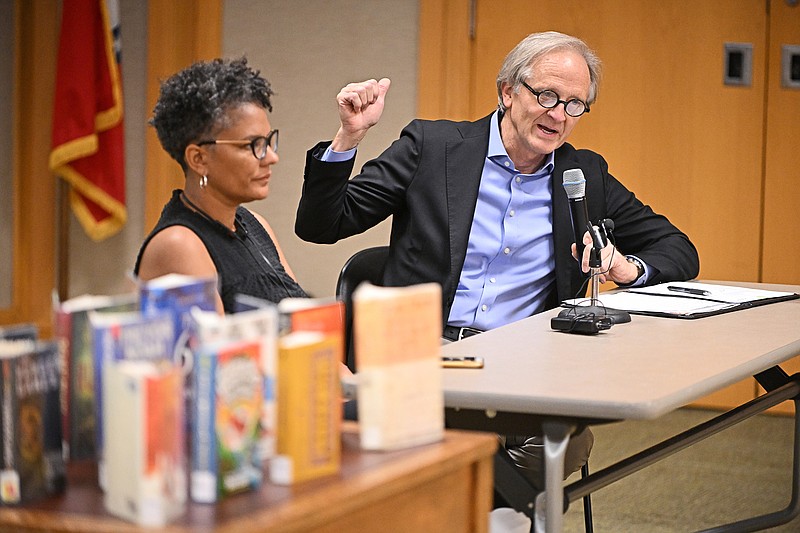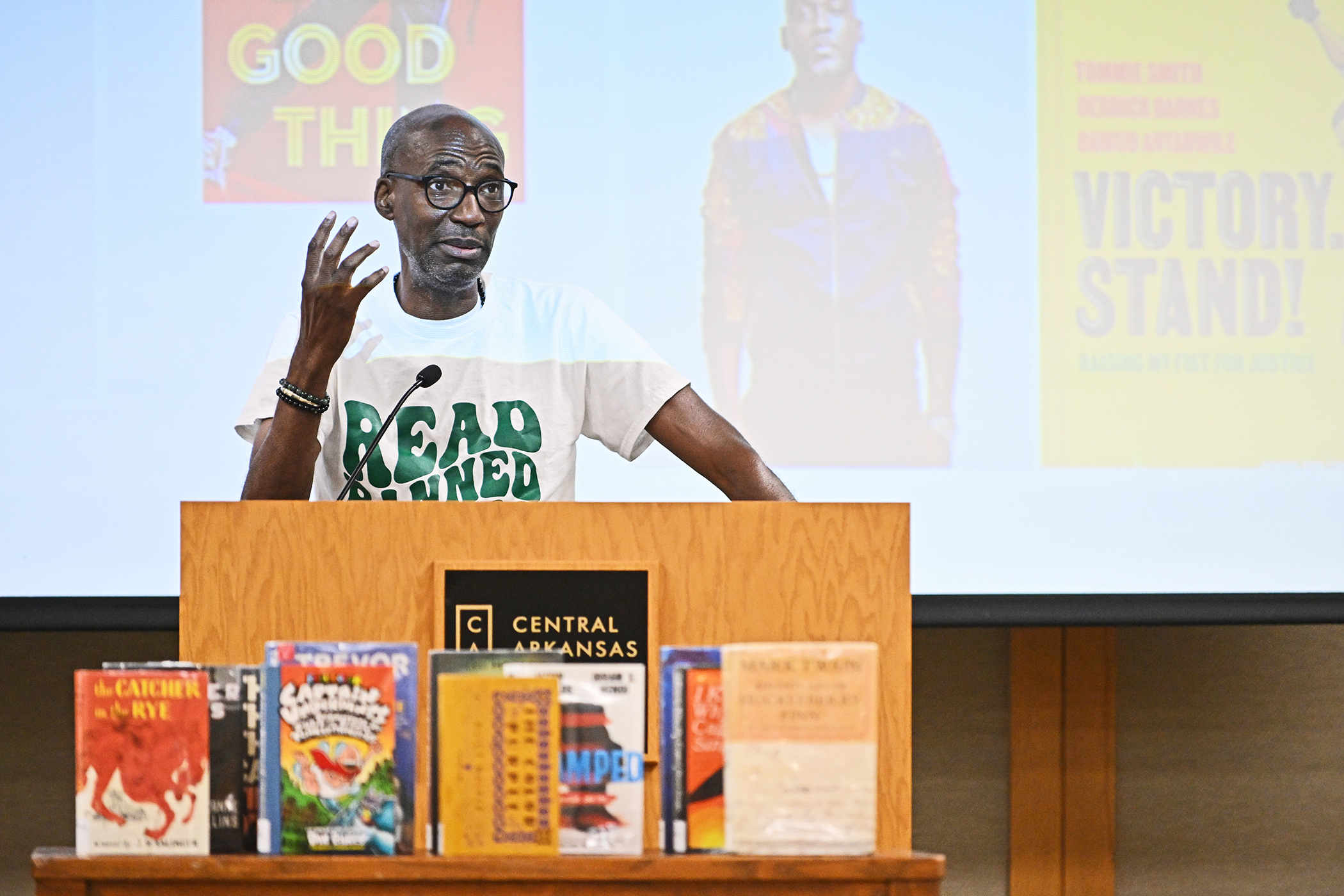Amid debates over access to library materials and topics discussed in school classrooms, the Little Rock Central High School National Historic Site hosted a panel discussion on Saturday titled "The Impact of Banning Books."
"We've got a group of state legislators, we've got our governor, who are rattling their swords and threatening free open access to particular forms of knowledge, to particular forms of art and to books," Dr. James D. Ross, associate professor of history at the University of Arkansas at Little Rock, said during his opening remarks for the discussion.
"As most of you probably know, this is not the first time we've been here, or that we've even seen this type of censorship. For 64 years Little Rock had a censorship board that periodically banned books and banned films."
The event at the Darragh Center Auditorium in the Central Arkansas Library System's Main Library in Little Rock was billed as a "conversation to explore book banning, past and present, and the impact of laws and regulations that restrict access to literature today."
The library system is among plaintiffs in a federal lawsuit challenging two provisions of Act 372, passed during this year's legislative session.
One provision establishes a misdemeanor offense, punishable by up to a year in jail, for furnishing a harmful item to a minor.
The other sets out a process for people to challenge the appropriateness of materials held in a library's collection. The provision requires successfully challenged material to be placed in an area inaccessible to minors and allows a decision not to relocate the material to be appealed to a city council or quorum court.
U.S. District Judge Timothy L. Brooks last month blocked the two provisions from taking effect while the lawsuit is pending.
"I practiced law for more than 30 years," Nate Coulter, executive director of the Central Arkansas Library System and a participant in Saturday's panel discussion, said.
"I used to tell clients, 'Lawsuits are the worst way to settle something.' But we had no choice when the legislation was adopted in March," he said.
Also providing a backdrop for the discussion was a state ban on "indoctrination" in school classrooms enacted first through executive order by Gov. Sarah Huckabee Sanders in January and later through her education overhaul law, the LEARNS Act.
Arkansas Education Department Secretary Jacob Oliva has cited the prohibition as a reason for removing a pilot AP African American studies course from the state's course code listings earlier this month.
Ross said the books that have been the subject of banning now and in the past all share similar themes.
"It must not be lost on us that the books and the classes that they want to ban are mostly books and classes of protests and liberation, books and classes that might set people free and teach them to ask questions about the power structure that limits them and their children," he said.
The panel was moderated by Patrick M. Oliver, founder of Say It Loud! Readers and Writers, which focuses on education through reading and writing to children and adults.
"I'm a proud student of Little Rock schools, all of those educators, those parents and all those who pushed Patrick Oliver to do his best," Oliver said.
"I'm so proud of you. I live in Dallas, Texas, now. But I keep my eye on the pulse in Little Rock."
He said seeing the state that he grew up in, that fostered his love of education and art, trying to take that away from his nieces and nephews who still live in Arkansas "really worried" him.
One of the topics discussed related to representation in children's books, which Oliver introduced with a case where a school in Alabama canceled a reading of Derrick Barnes' book "Crown: An Ode to the Fresh Cut."
Tiffeni Fontno, director of the Peabody Library at Vanderbilt University, spoke about her experience reading the book for the first time.
"What's so incredible about the first time I read 'Crown' is it's the most authentic experience of being in a Black barbershop, the first time I've ever read a book like that, and it means everything to a little boy to be able to read something and see himself represented in a book," she said.
Being able to see a character who shared her experiences would have "made a world of difference in middle school," Fontno said.
Tracie D. Hall, executive director of the American Library Association, echoed these sentiments and spoke about the lack of representation in children's books.
"We are in a time where authors who are talking about very specific histories are being challenged, but we still have more animals as the main character in children's books than we have people of color."
The panelists also discussed topics surrounding censorship and the implications of it.
"Let's understand that censorship is a Trojan horse for more pernicious and egregious policies, policies that would mean that many of the things that we take for granted would be no more," Hall said.
She urged young people to get involved in the community, run for office and vote.
David Dennis Jr. spoke about his book "The Movement That Made Us" that he co-wrote with his father, who lived through the Civil Rights Era, and the connection between his father's experience and what they are seeing now.
In the book, he describes the Civil Rights movement as a "war."
"I'm going to continue using that uncomfortable word 'war,' because that's exactly what this is," Dennis said.
"The dirty little secret that they don't want students to know about this war, is that the people who fought this war and won this war, were not that much older than the students who have read these banned books," he said.
Ly is a Report for America Corps member.

